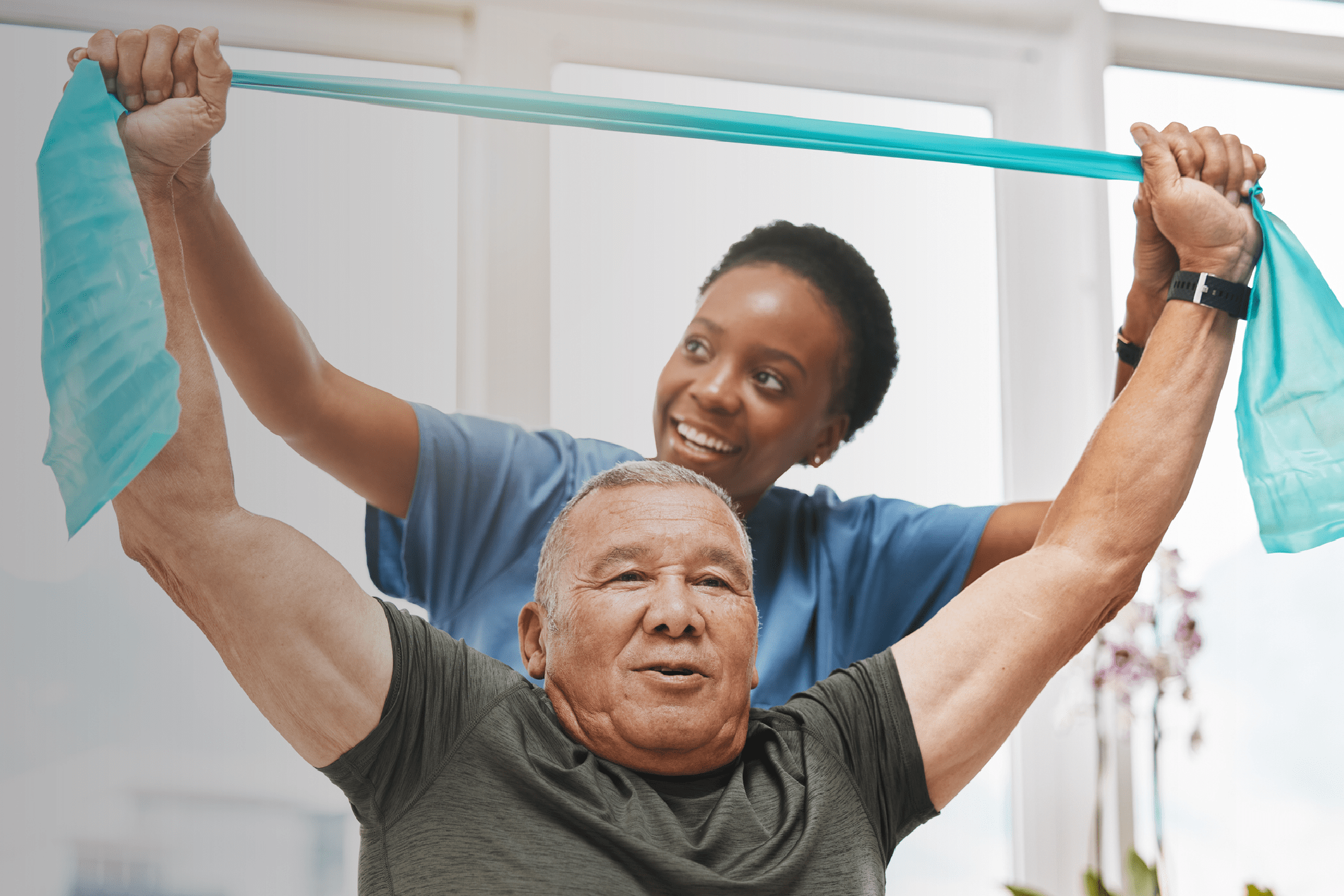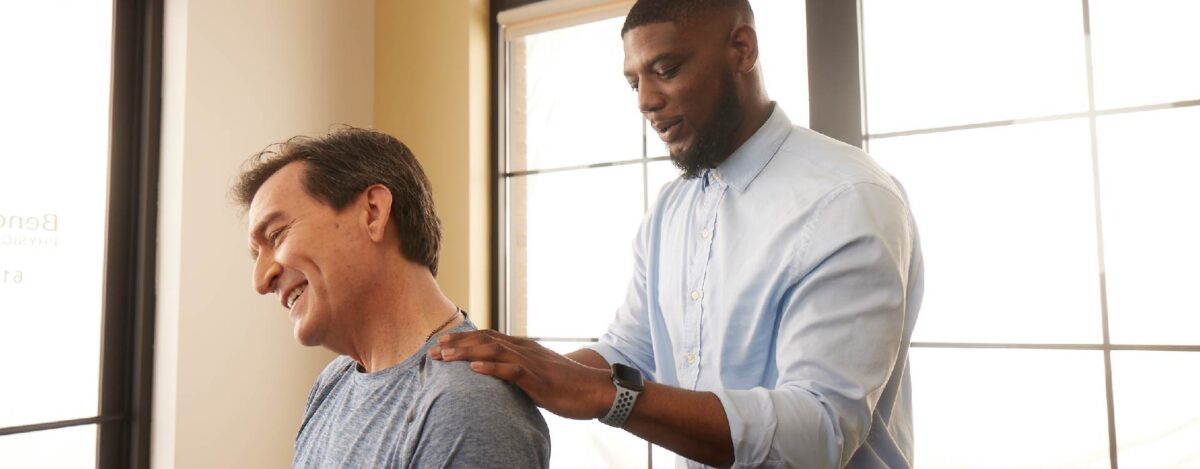Physical therapists play an ever-increasing role in the healthcare continuum. Primary care providers, surgeons, and other healthcare professionals are relying on physical therapy to assume a key role in helping individuals stay healthy and take a proactive approach in identifying and addressing underlying health concerns. Upstream Rehabilitation and our family of brands are passionate about being on the leading edge when it comes to the implementation of new care practices and programs to help improve the quality of care we provide.
Learn more about one of the new pilot programs we’re rolling out and how the care coordination model is just one of the many exciting new initiatives that we’re implementing to improve our ability to care for patients across the nation at our physical therapy locations near you.
What is the Care Coordination Model?
Care Coordination is a new care delivery process that enables physical therapists to practice at the top of their license by screening for and addressing patient needs that go beyond the chief complaint. Once needs are identified, the goal is to connect patients with the appropriate care.
This new care model helps to differentiate Upstream Rehabilitation in the physical therapy industry because it allows our physical therapists to deliver holistic, patient-centered care that helps to proactively address the needs of our communities.
Care Coordination helps to promote the role of a physical therapist and also strengthen the part of the physical therapy profession in the healthcare value chain. Upstream Rehabilitation is currently piloting this new care coordination program in several select clinics across the company.
New Capabilities Developed Alongside the Care Coordination Model
As part of the new care coordination model, Upstream Rehabilitation is also developing new capabilities to systematically ensure that the care coordination model is being followed. One of those capabilities include a body systems screening checklist. This checklist is designed to go beyond the patient’s chief complaint to identify health issues prevalent in the specific communities we’re serving. This means addressing specific population health needs like unmanaged diabetes or uncontrolled hypertension.
Some examples of the medical screens targeting the specific health needs in local communities might include:
- Cardiac – HTN, CHF, & Circulatory Conditions
- Cancer
- Type 2 Diabetes
- Fall Risk
- Preventative Screens (i.e. mammogram/colonoscopy)
- PCP Connection
Educating patients about the importance of having a primary care provider and helping them find one. In addition, we’re also educating patients on the importance of being proactive throughout their care with preventive screens.
Upstream Rehabilitation is also implementing new clinician workflows that help to create standardization and enable the management oversight of conditions that are identified for follow-up care. These new clinician workflows help to streamline the patient intake experience and enable the clinician to focus on clinical red flags. Decision support logic has also been developed and integrated to standardize the screening process.
We’re also working on the development of new referral coordination capabilities which will allow us to connect patients with needed care when a referral is made.
Early Learnings from the Pilot Program
We’ve been able to gather some early learnings from the pilot program of the care coordination model and the first thing that’s clear is that the care coordination medical screen is key to delivering whole person healthcare. Screening for red flag conditions is essential to delivering care as a primary care PT and providing direct access care. Technology-enabled workflows also help to make it easier to efficiently deliver new service.
In addition, care coordination helps to highlight the value of team-based care and has become the standard of care in the clinics we’re piloting the program in.
What Are Our Physical Therapists Saying About the Care Coordination Model?
Our physical therapists have rave reviews about the new care coordination model within the pilot clinics and have also provided some great examples on how the care coordination model is already having an impact in their local community. Take a look at some of the testimonials below to see what our PTs are saying about the pilot program:
“[A patient] was recently referred for vertigo. During the evaluation, I discovered that the patient has been suffering with vertigo symptoms for the past four years. During this period, [the patient] had seen multiple specialists and had multiple tests but was still experiencing symptoms. During the Care Coordination screen, I educated [the patient] on the importance of having a PCP to quarterback [their] care and confirmed that [the patient] did not have a PCP. As part of the new pilot, I offered to help [the patient] establish a PCP, which [they] accepted. [The patient] was very appreciative that I could help [them] connect to the care [they] needed.”
Later on after receiving the referral, the PCP was able to connect with the patient and helped guide the patient on setting up an appointment with a PCP location near them.
Join an Organization Passionate About Elevating Physical Therapy to the Next Level
The Care Coordination model is just one of many examples at Upstream Rehabilitation and our family of brands demonstrating our passion to implement and evaluate new pilot programs and technology that improve our ability to impact patients and provide enhanced levels of care in our communities.
If you’re seeking an organization that’s passionate about elevating physical therapy care to the next level, join Upstream Rehabilitation and our family of brands. We’re hiring nationwide for both clinical and non-clinical physical therapy positions.




